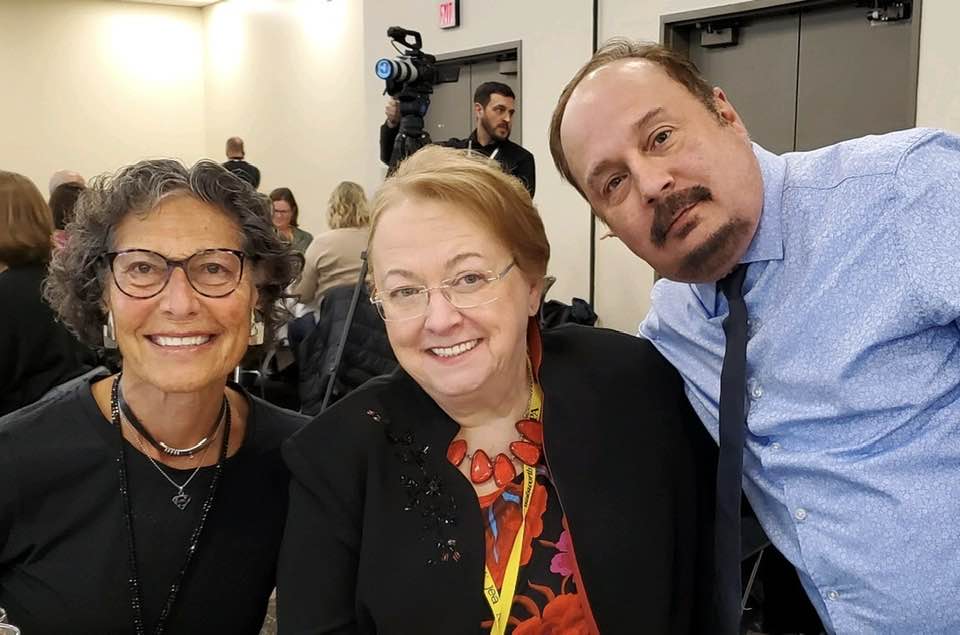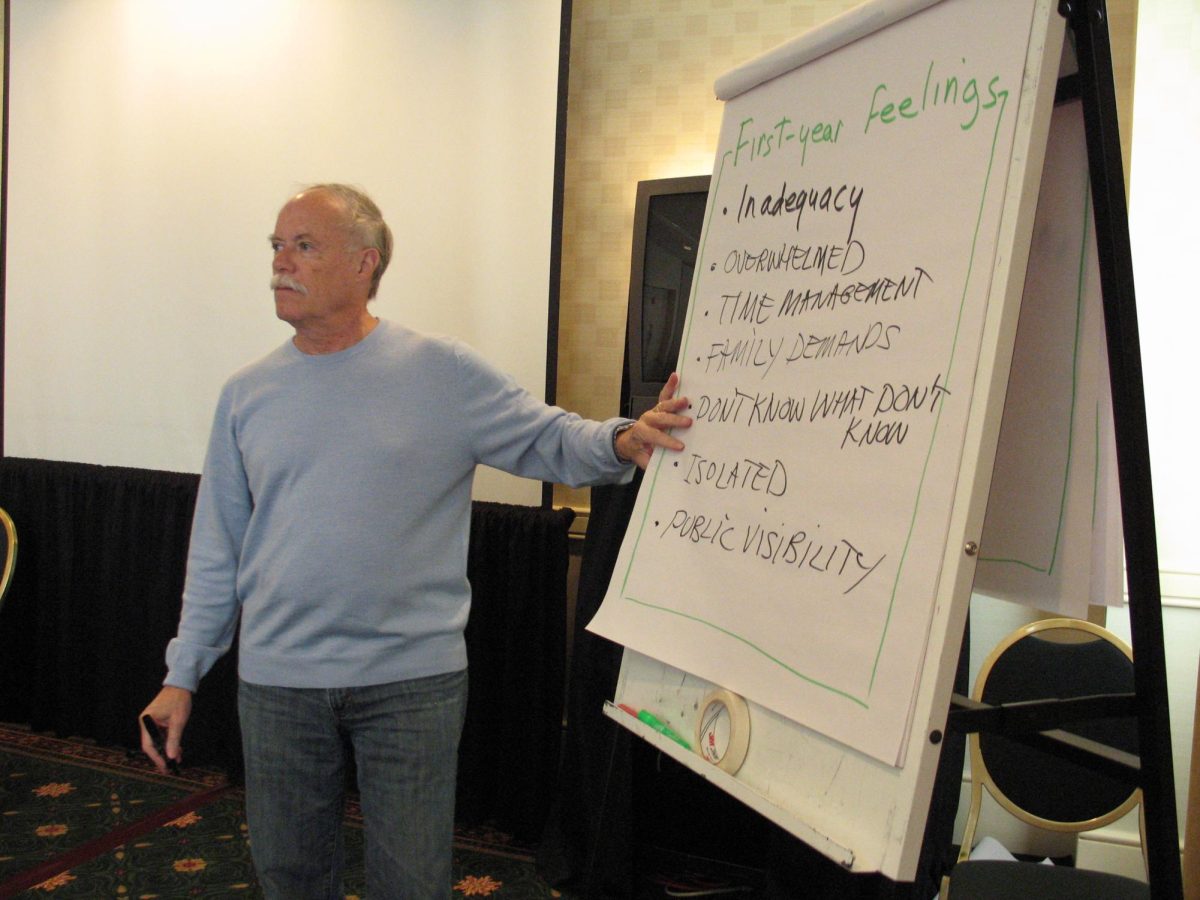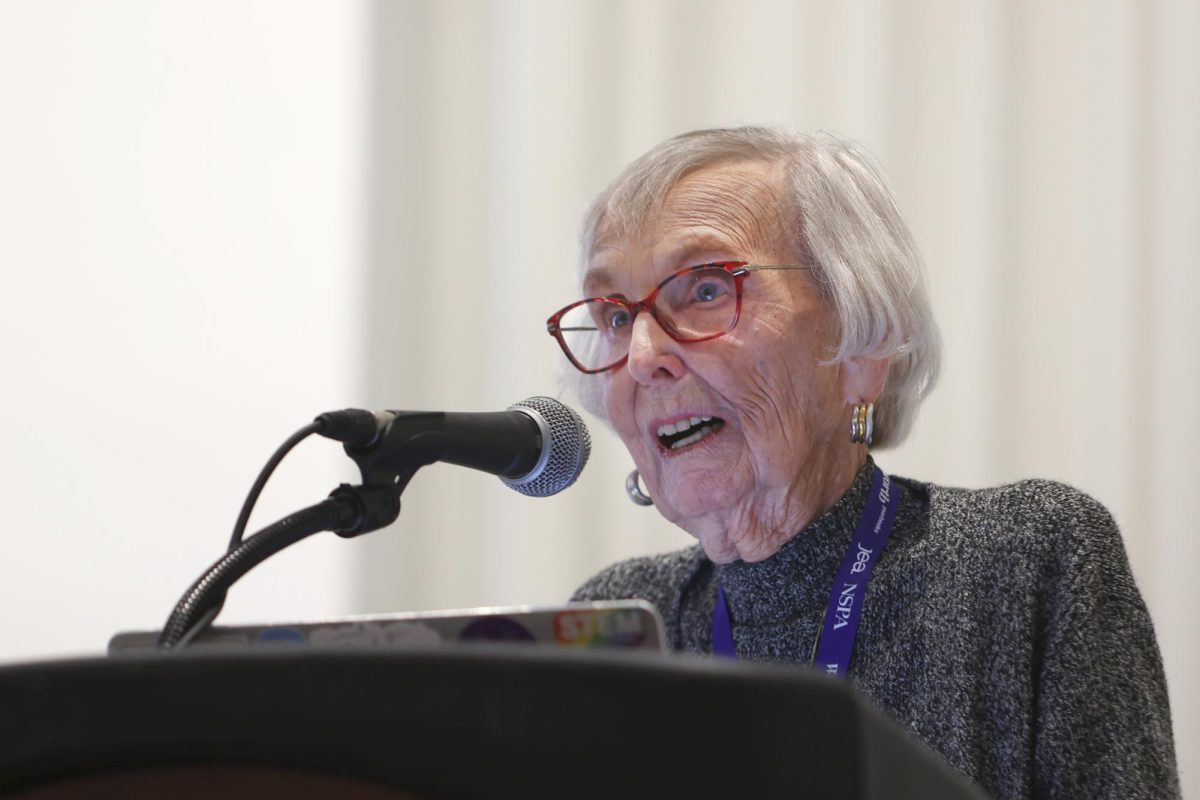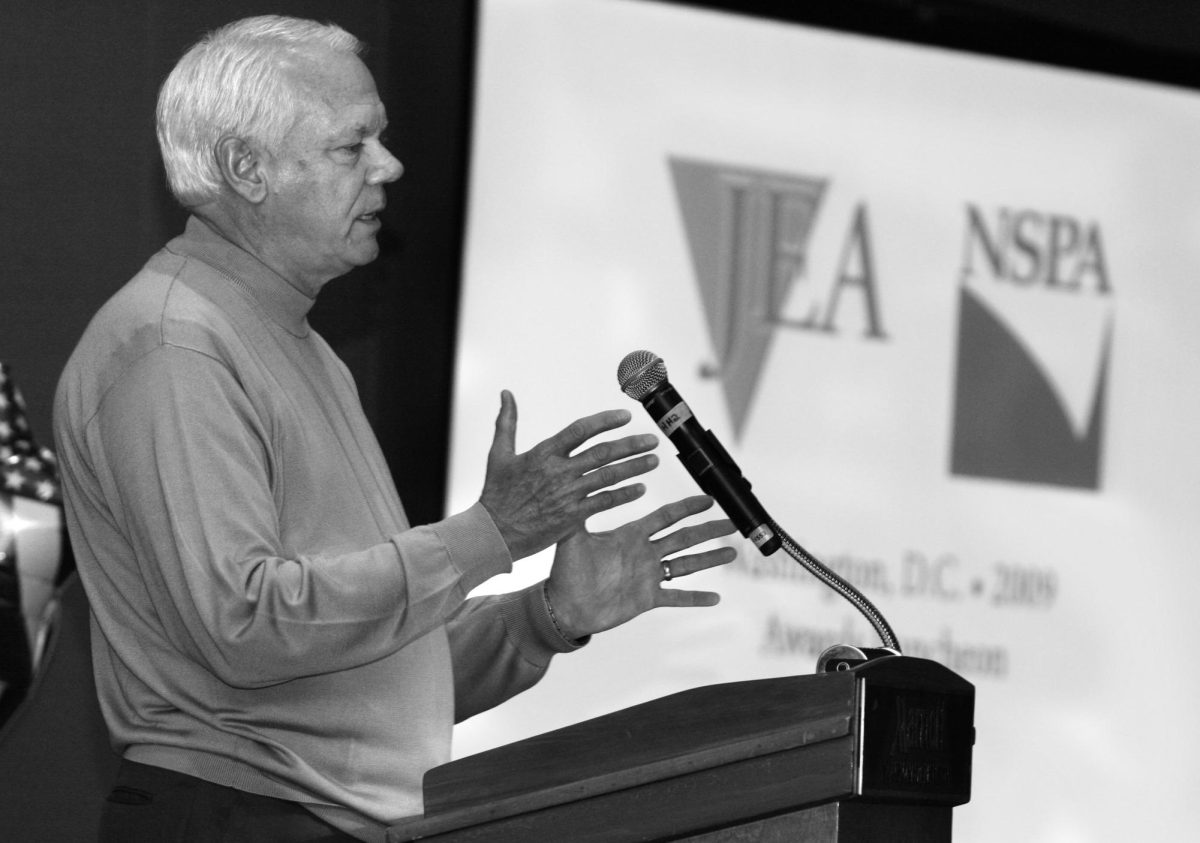For Carl Towley, scholastic journalism was about personal relationships.
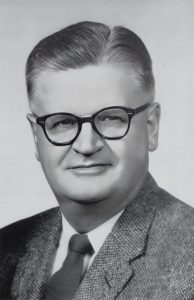
A student journalist himself in high school and college, Towley taught journalism and advised the yearbook at Hopkins (Minnesota) High School for more than two decades. His relationship with the administration was, no doubt, made easier because the chairman of the Board of Education was Paul Swenson, his college roommate and the long-time director of the Newspaper Fund.
His relationship with students prompted the yearbook staff to secretlyI dedicate the book to him.
- To one who teaches the fundamentals of civic responsibility
- To one who practices these fundamentals through service to the community
- To one who perfects these fundamentals by living them each day
- To one who believes, “The greatest contributions I can make to my classes is to help them develop a social consciousness — which to me is a sensitive awareness of others, their needs, hopes, fears and accomplishments — all of which may lead to mutual understanding and respect.”
We take pride in dedicating the 1959 Warrior to you — Carl Towley
His relationship with other journalism teachers created the foundation for today’s Journalism Education Association. In addition to his position at Hopkins High School, Towley became the first executive secretary of the Journalism Education Association, first known as the National Association of Journalism Directors. His approach to leading was based on his experience and observation of journalism teachers who were not adequately prepared to teach journalism or advise student publications.
He wrote letters to high school and college administrators, calling attention to the importance of journalism courses. and that among 556 winners in the 1956 National Merit Scholarship competition, only three students planned to major in journalism.
He established commissions, planned programs, strengthened cooperative efforts with other scholastic journalism organizations and created projects to help journalism students and their advisers develop journalistic skills. He chaired a Commission on the Status of Journalism and planned a series of articles in educational journals slanted to interest administrators.
Towley suffered a fatal heart attack in 1959 shortly after distributing the yearbook and reading the dedication. The book’s theme, “Blueprint for Tomorrow,” prophetically describes his work for scholastic journalism.
In 1965 Towley was honored at the Chicago convention. His wife, Violet, was at the head table to hear accolades for her husband as the organization formally established the Carl Towley award to be the highest recognition to given to a member.
“Although officers of NAJD came and went, Carl remained the unifying influence that kept the association functioning,” wrote Sister M. Rita Jeanne, FSPA. “Dedicated, not only to teaching journalism, but also to the betterment of teaching techniques and conditions, Carl was a bulwark of strength in the fight for professional recognition of journalism teachers.”



